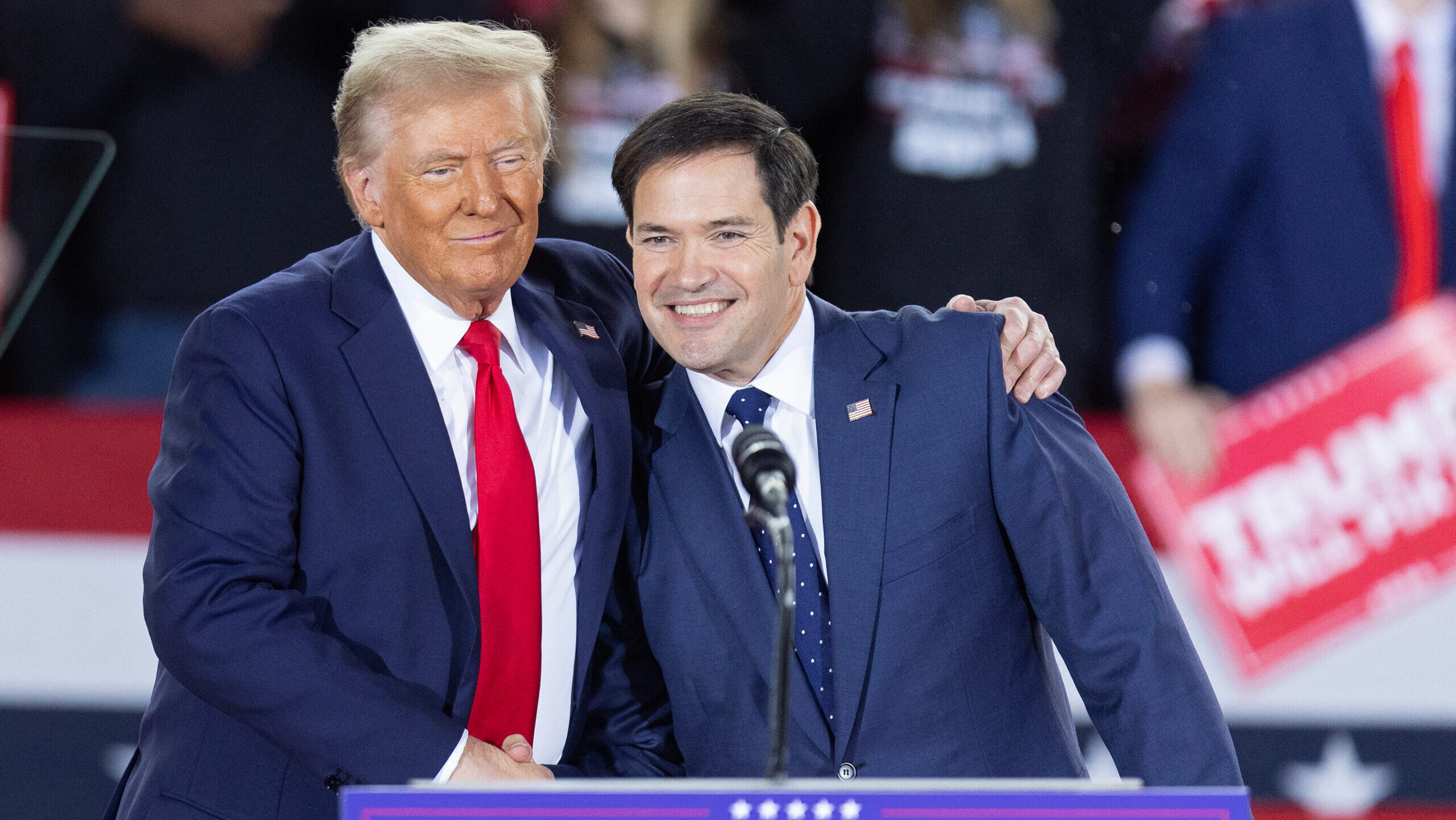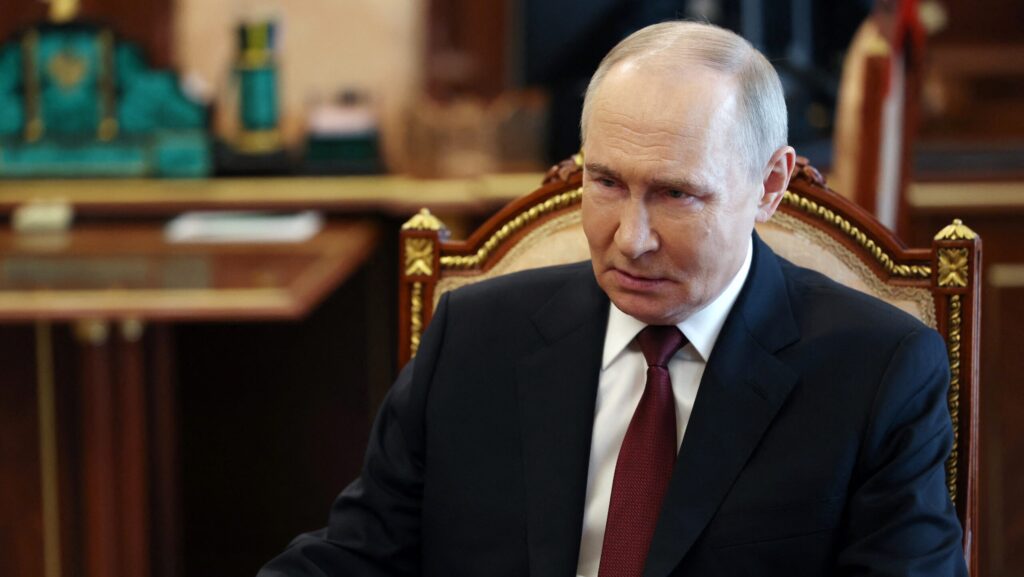One week has passed since Donald Trump and the Republicans secured a landslide victory in the US elections on 5 November. The GOP triumphed in all three races: Trump is moving back to the White House with Republican majorities secured in both the Senate and the House. Trump has not been idle since: he has begun selecting members for his future administration, and the names he has put forward so far indicate that, as promised during the campaign, there will be drastic changes in key areas such as foreign policy.
According to press reports, Trump is set to appoint Senator Marco Rubio of Florida as his Secretary of State. The Florida senator, of Cuban American descent, has long been a prominent figure in US politics. He served as Speaker of the Florida House of Representatives from 2006 to 2008 and has been a senator for the Sunshine State since 2011. Rubio’s name had also been frequently mentioned as a potential vice-presidential candidate in Trump’s 2024 campaign.
Rubio for Peace!
Rubio is a key member of the Senate Intelligence and Foreign Relations Committees, and on many foreign policy issues, he has adopted a stronger and tougher stance than Trump. One such issue is China. For example, in 2020 Rubio earned sanctions from Beijing for his criticisms of Chinese actions in Hong Kong. He also called for a national security investigation into the Chinese-owned social media app TikTok, which helped prompt US efforts to regulate foreign tech influence. Rubio’s firm stance on China aligns with Trump’s foreign policy and sends a clear message of anticipated US–China rivalry under a second Trump administration, as noted by Firstpost.
Rubio’s position on the war in Ukraine also stands in stark contrast to that of the previous Democratic administration. The Florida senator was one of 15 Republicans who voted against the $95 billion military aid package to Ukraine. ‘I’m not on Russia’s side—but unfortunately, the reality is that the way the war in Ukraine will end is with a negotiated settlement,’ Rubio told NBC in September. His views on Ukraine—and foreign military interventions in general—align with those of president-elect Donald Trump and also Hungarian Prime Minister Viktor Orbán. The two allies have long advocated for peace and for cutting both financial and military aid to Kyiv. Trump is said to have already held talks with Russian President Vladimir Putin on the conflict, though the Kremlin has denied that the phone call took place.
Rubio’s potential appointment would signal an 180-degree shift in US foreign policy on Ukraine. Given the US’s influence as a superpower, pro-peace voices could become the dominant perspective within the Western influence sphere. This shift could put pressure on Brussels, which remains pro-war, leaving it isolated in its stance.
The Florida senator at the same time is strongly pro-Israel, much like Trump’s pick for UN Ambassador, Elise Stefanik. A source close to Israeli Foreign Minister Gideon Sa’ar stated that he is ‘expected to warmly welcome’ his likely counterpart, Rubio. ‘We’re talking about someone who is not only a firm friend of Israel, but also has a consistent track record on the major issues of the day,’ such as Iran, the source said. Rubio has advocated for stronger sanctions on Iran and their enforcement over the past year, even criticizing the first Trump administration for not taking more aggressive action with sanctions.
Rubio’s vocal support for Israel remains consistent. As vice chairman of the Senate Intelligence Committee, he visited Israel in April and in November 2023 he co-hosted a bipartisan screening for members of Congress of a film documenting the atrocities committed by Hamas on October 7. Rubio likened the Israel Defense Forces’ ground operation in Rafah, which was opposed by the Biden administration, to the Allies’ pursuit of Adolf Hitler during the Holocaust.
More From the Sunshine State: Waltz for National Security
The fact that the second Trump administration will pursue the foreign policy outlined during the campaign is further indicated by press reports suggesting that the president-elect will appoint Mike Waltz as national security advisor. In this role, he is expected to oversee a strategic shift in the handling of key international challenges, including the war in Ukraine and rising tensions in the Middle East.
Waltz, a US Representative from Florida, served as defence policy director under defence secretaries Donald Rumsfeld and Robert Gates before being elected to Congress in 2018. He is currently the chairman of the House Armed Services Subcommittee overseeing military logistics and also serves on the select committee on intelligence.
Waltz and Rubio will have much work to do together, but it is unlikely to be difficult due to their alignment on key issues. Like Rubio, Waltz advocates for strong action to counter China’s economic and political rise. In a book published earlier this year, titled Hard Truths: Think and Lead Like a Green Beret, Waltz outlined a five-part strategy for preventing war with China, including accelerating arms supplies to Taiwan, reassuring allies in the Pacific, and modernizing aircraft and ships.
‘Waltz and Rubio will have much work to do together, but it is unlikely to be difficult due to their alignment on key issues’
Waltz’s position on the war in Ukraine also aligns with that of the new administration. He has expressed reservations about the continued extensive US military aid to Ukraine, arguing that European nations should increase their support to ensure regional stability. His stance includes backing a peace plan designed to bring Ukraine closer to Western alliances.
As Jewish Insider noted, Waltz is also a staunch supporter of Israel. He told the outlet in September that the US should apply pressure on Hamas and its Iranian backers, and accused the Biden administration of exerting ‘one-sided pressure on Israel to make a [ceasefire] deal’ with Hamas in Gaza. Waltz also expressed scepticism about the US-proposed ceasefire plan between Israel and Hezbollah in Lebanon. Even before the Gaza war, Waltz was a strong supporter of Israel and advocated for tougher policies against Iran and its proxies across the Middle East.
Promising News for Hungary
What we have seen so far from the foreign policy wing of the incoming Trump administration is a cause for optimism for both Europe and Hungary. With this line-up, it is almost certain that long-awaited peace and stability will soon return to the continent, and Budapest will no longer be an outcast in the EU due to its pro-peace stance. On the contrary, this could lead to a growing sense of strengthened rationality and pro-peace sentiment within the EU.
A similar situation applies to Israel. Hungary is currently the most pro-Israel country in the EU, having vetoed several statements condemning Tel Aviv, banned pro-Palestinian protests, and worked to provide a safer environment for the Jewish community within the country. In contrast, many Western European countries, as well as the United States, have been overwhelmed by rising anti-Semitism.
‘Ultimately, the US interest aligns with Hungary’s: peace, stability, and the economic strengthening of both countries’
The Trump administration’s firmly pro-Israel and pro-peace policies could also bring stability to the Middle East, which would likely have a significantly positive impact on Europe’s economic performance and competitiveness.
Although Hungary’s position and that of the US administrations differ on China—given that China is a strategic systemic adversary of the US—a consistent and pragmatic policy can be expected in this area. Trump respects his sovereign allies, so he is unlikely to pressure Budapest into adopting a hostile stance towards Beijing, with which Hungary has important economic ties. Ultimately, the US interest aligns with Hungary’s: peace, stability, and the economic strengthening of both countries. A pragmatic relationship with China plays a role in this, one way or another.
Related articles:








